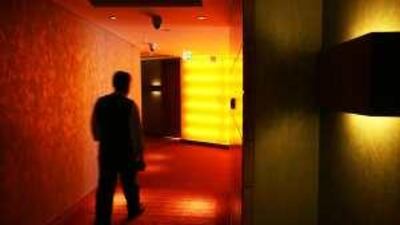But there is much the kingdom can learn from Abu Dhabi Abu Dhabi will be the centre of the world's attention this week as it hosts the glamorous world of Formula One. For restaurants, hotels and shops in the emirate, it will be a bonanza. For local authorities, it will be a logistical headache. But when the dust clears and Beyonce and Aerosmith have flown on to their next gigs, what will Abu Dhabi have to show for its brief spell in the international spotlight? And what potential does the F1 event hold for the wider economy?
For answers to these questions, Abu Dhabi can look to nearby Bahrain, which has been hosting an early leg of the annual motor racing championship since 2004. "Last year, the grand prix generated close to US$600 million (Dh2.2 billion) in direct and indirect business, and that's just from one race," says Martin Whitaker, the chief executive of the Bahrain International Circuit, which hosted the fourth leg of the F1 championship in April.
"If you look at all the other events we host, from the Australian V8 Supercar series to corporate events, they not only generate revenue but they help raise the kingdom's profile abroad. "In five years we've gone from zero to a huge level of international awareness. There's a huge indirect benefit for the economy." In recent years, the government of Bahrain has used the GP week as a marketing exercise to encourage foreign investors. In London this spring, more than 100 black taxi cabs sported "Business Friendly Bahrain" advertisements. The slogan was the brainchild of M&C Saatchi for the Bahrain Economic Development Board, which is responsible for encouraging foreign direct investment.
There is some substance to the boast. The World Bank last month ranked Bahrain as the 20th best country for ease of doing business. Yet volumes of business remain small. Bahrain's GDP of $21.9bn is less than a 10th the size of the economy of the UAE. "In tourism alone, Bahrain has huge natural advantages compared with its neighbours, from its archaeological heritage to its museums, but it has been very slow to make anything of them," says Mr Whitaker.
But the GP is beginning to act as a catalyst. The government used the event this year to launch @Bahrain, a $3.5bn mixed-use park being built next to the international circuit in Sakhir, in Bahrain's southern desert. With hotels, indoor arenas and commercial and industrial space, the 180-hectare site will trade off its association with the circuit, hosting a car club and theming itself around transport and applied technology.
Besides the annual GP, the developers of @Bahrain say they intend to capitalise on the country's free trade agreement with the US, signed in 2004, which already generates some $1.3bn a year for the economy. The park will also replace the country's ageing international exhibition centre in Manama. "The old centre already generates some 300,000 hotel room nights a year, so you can see the potential," says Nicola Pero, the chief executive of @Bahrain. "Our projections are that within the first four or five years we will double the exhibition business in Bahrain."
@Bahrain comes under the charge of Mumtalakat, a government holding company that also owns the international circuit and a stake in the McLaren F1 racing team. Mumtalakat answers to the Economic Development Board (EDB), which is chaired by Bahrain's crown prince, Sheikh Salman bin Hamad Al Khalifa. "One of their great strengths is co-ordination and another is strategic literacy," says Michael Baulk, the former chairman of the advertising agency Abbott Mead Vickers, who advises the EDB on its marketing.
"Bahrain's rulers feel they have a compelling case to make to overseas companies looking to headquarter in the kingdom." But will the arrival of F1 in Abu Dhabi put a dent in Bahrain's plans? Mr Whitaker says the reverse is true. Anything that raises the profile of racing in the GCC will benefit both venues, he says, pointing out that both governments have signed an agreement that provides for future double-header events.
"We could be issuing joint tickets by 2011," Mr Whitaker says. "To take one possibility, we'll be holding one leg of the Australian V8 Supercar racing in February, which is just after the opening of the championship in Abu Dhabi. "Double-header events would make a lot of sense, both in terms of joint promotions and cost effectiveness. It reduces exposure to us as organisers and also increases the attractiveness of this part of the world to spectators.
"People are more likely to travel to the Middle East if they're coming for two events and can explore both countries on one ticket." But Abu Dhabi has already surpassed its smaller neighbour in some areas, says Mr Whitaker. "They have really used Formula One to put Abu Dhabi on the map as a tourist destination," he says. "In the last 18 months we've seen a lot more enthusiasm about selling the grand prix here in Bahrain. It's a tour operator's dream.
"But frankly, there is a lot more that can and should be done, and maybe Abu Dhabi will show us the way." @Email:business@thenational.ae

